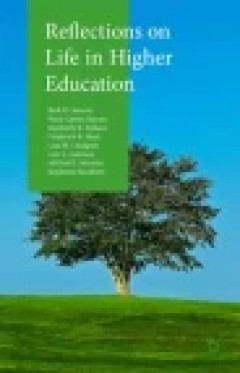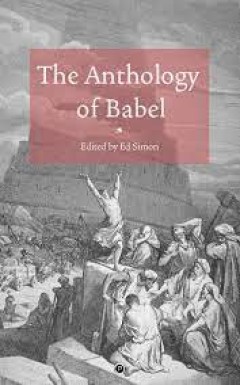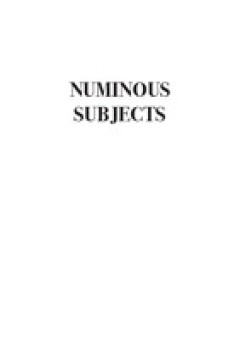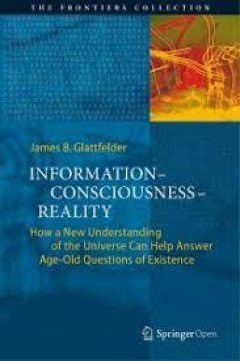Filter by

Reflections on Life in Higher Education
This book explores the challenges of an academic teaching career. The authors discuss the issues that may arise in the tenure process, scholarship activities, publishing, and providing service to their academic communities as well as how to keep teaching lessons relevant and fresh.
- Edition
- -
- ISBN/ISSN
- -
- Collation
- -
- Series Title
- -
- Call Number
- -

Critical Rhythm : The Poetics of a Literary Life Form
Explores both the theory and practice of rhythm in literature with a focus on nineteenth and twentieth-century poetry. Emphasis on rhythm's role in contemporary literary criticism, including debates about poetic form and genre. This collection intervenes in recent debates over formalism, historicism, poetics, and lyric by focusing on one of literary criticism's most important, most vested, and …
- Edition
- -
- ISBN/ISSN
- 9780823282043
- Collation
- -
- Series Title
- Verbal Arts: Studies in Poetics
- Call Number
- 800 GLA c

Rethinking Obligation A Feminist Method for Political Theory
In Rethinking Obligation, Nancy J. Hirschmann provides an innovative analysis of liberal obligation theory that uses feminism as a theoretical method for rethinking political obligations from the bottom up. In articulating a feminist method for political theory, Hirschmann skillfully brings together theoretical categories and methods previously seen as opposed: feminist standpoint and postmoder…
- Edition
- -
- ISBN/ISSN
- 9781501725647
- Collation
- -
- Series Title
- -
- Call Number
- -

Ambivalences of Creating Life: Societal and Philosophical Dimensions of Synth…
"Synthetic biology" is the label of a new technoscientific field with many different facets and agendas. One common aim is to "create life", primarily by using engineering principles to design and modify biological systems for human use. In a wider context, the topic has become one of the big cases in the legitimization processes associated with the political agenda to solve global problems wit…
- Edition
- 1
- ISBN/ISSN
- 978-3-319-21088-9
- Collation
- XVII, 335
- Series Title
- Ethics of Science and Technology Assessment
- Call Number
- 100 AMB a
Reductive Explanation in the Biological Sciences
This book develops a philosophical account that reveals the major characteristics that make an explanation in the life sciences reductive and distinguish them from non-reductive explanations. Understanding what reductive explanations are enables one to assess the conditions under which reductive explanations are adequate and thus enhances debates about explanatory reductionism. The account of r…
- Edition
- 1
- ISBN/ISSN
- 978-3-319-25310-7
- Collation
- XI, 277
- Series Title
- History, Philosophy and Theory of the Life Sciences
- Call Number
- 101

The Anthology of Babel
Why should there only be literary scholarship about authors who actually lived, and texts which exist? Where are the articles on Enoch Campion, Linus Withold, Redondo Panza, Darshan Singh, or Heidi B. Morton? That none of these are real authors should be no impediment to interpreting their invented writings. In the first collection of its kind, The Anthology of Babel publishes academic articles…
- Edition
- -
- ISBN/ISSN
- 9781950192472
- Collation
- -
- Series Title
- -
- Call Number
- -

The Correspondence of Jeremy Bentham, Volume 2
The first five volumes of the Correspondence of Jeremy Bentham contain over 1,300 letters written both to and from Bentham over a 50-year period, beginning in 1752 (aged three) with his earliest surviving letter to his grandmother, and ending in 1797 with correspondence concerning his attempts to set up a national scheme for the provision of poor relief. Against the background of the debates on…
- Edition
- -
- ISBN/ISSN
- 9781911576273
- Collation
- -
- Series Title
- -
- Call Number
- -

Numinous Subjects: Engendering the Sacred in Western Culture, An Essay
Part religious studies, part feminist theory, part philosophy, part indescribable: such is Numinous Subjects. Described by the author as ‘a kaleidoscopic exploration of why three gendered figures of the sacred matter within western culture,’ the experience of reading this text truly is akin to gazing through a constantly turning kaleidoscope. Images, concepts, phrases and quotes are continu…
- Edition
- -
- ISBN/ISSN
- -
- Collation
- -
- Series Title
- -
- Call Number
- -

Information—Consciousness—Reality How a New Understanding of the Univers…
This open access book chronicles the rise of a new scientific paradigm offering novel insights into the age-old enigmas of existence. Over 300 years ago, the human mind discovered the machine code of reality: mathematics. By utilizing abstract thought systems, humans began to decode the workings of the cosmos. From this understanding, the current scientific paradigm emerged, ultimately discover…
- Edition
- -
- ISBN/ISSN
- -
- Collation
- -
- Series Title
- -
- Call Number
- -

Lifestyle Politics and Radical Activism
This book is available as open access through the Bloomsbury Open Access programme and is available on www.bloomsburycollections.com. Attempts by people to enact their political beliefs in their daily lives have become commonplace in contemporary US culture, in spheres ranging from shopping habits to romantic attachments. This groundbreaking book examines how collective social movements have cu…
- Edition
- -
- ISBN/ISSN
- 9781441157430
- Collation
- -
- Series Title
- -
- Call Number
- -
 Computer Science, Information & General Works
Computer Science, Information & General Works  Philosophy & Psychology
Philosophy & Psychology  Religion
Religion  Social Sciences
Social Sciences  Language
Language  Pure Science
Pure Science  Applied Sciences
Applied Sciences  Art & Recreation
Art & Recreation  Literature
Literature  History & Geography
History & Geography